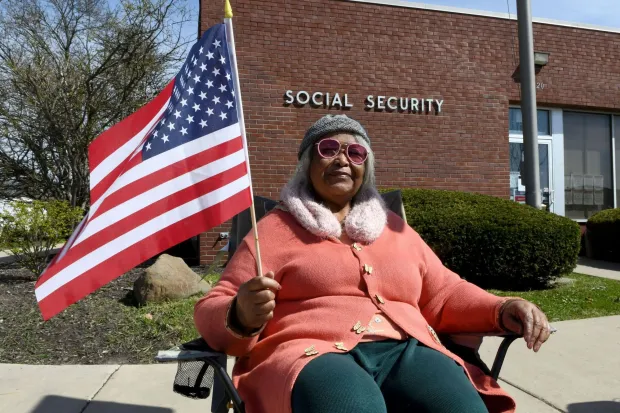Social Security recipients are in for some significant changes starting in 2025. With inflation continuing to impact the purchasing power of benefits, the 2025 Cost-of-Living Adjustment (COLA) and the One Big Beautiful Bill Act are coming into play. These new developments are intended to provide some relief but also raise long-term concerns about the sustainability of the Social Security system. Whether you’re a retiree, soon-to-be retiree, or someone planning their future, understanding these changes is crucial.

This article breaks down the 2.5% COLA increase for 2025, the One Big Beautiful Bill with its $6,000 tax deduction for seniors, and what it all means for your retirement planning. By the end, you’ll know what changes are ahead, how to plan accordingly, and what you can do to ensure your Social Security benefits support you in the long run.
Social Security Payments Are Changing
| Key Data & Stats | Details |
|---|---|
| 2025 COLA Increase | Social Security benefits will increase by 2.5% for the year, adding about $50 per month for recipients. |
| Maximum Monthly Benefit | By delaying benefits until age 70, the maximum monthly benefit could reach $5,108. |
| One Big Beautiful Bill | The bill includes a $6,000 tax deduction for seniors, and it eliminates federal income taxes on Social Security benefits for many seniors. |
| Tax Implications of COLA | Medicare premiums are rising by $10, reducing the net COLA gain for recipients. |
| Projected Social Security Shortfall | If no action is taken, Social Security could face a 24% reduction in benefits by 2032. |
| One Big Beautiful Bill’s Expiration | The $6,000 tax deduction expires in 2028, creating potential future challenges. |
The 2.5% COLA increase and the One Big Beautiful Bill offer some immediate relief to Social Security recipients. However, seniors should be cautious and plan for the future, as the Social Security system faces significant funding challenges. By diversifying income sources, planning your retirement tax strategy, and staying informed, you can make the most of the current changes while preparing for what’s next.

Understanding the 2025 COLA Increase
What is COLA?
The Cost-of-Living Adjustment (COLA) is an essential feature of Social Security that helps recipients keep pace with inflation. In 2025, Social Security benefits will see a 2.5% increase. While this may seem modest compared to the 8.7% increase seen in 2023, it still provides much-needed relief for many seniors struggling to keep up with rising living costs.
The average Social Security benefit will increase by around $50 per month, bringing the total to about $2,002. For many seniors who rely heavily on Social Security for day-to-day expenses, this increase is vital in maintaining purchasing power.
Why is the COLA Increase Important?
The COLA adjustment is particularly crucial for seniors who rely solely on Social Security as their primary source of income. Without it, many would face a drastic decline in their standard of living as inflation erodes the value of their benefits over time. While 2.5% is lower than previous years, it still helps recipients meet the growing costs of food, healthcare, and other essentials.
However, there’s a catch: the Medicare Part B premium is increasing in 2025, which reduces the impact of the COLA increase. The standard Medicare Part B premium will rise from $174.70 to $185 per month, meaning a chunk of the COLA increase will be offset by these higher healthcare costs.
The One Big Beautiful Bill: Key Provisions for Seniors
Overview of the Legislation
The One Big Beautiful Bill is a piece of legislation that was introduced to ease the financial burden on seniors, especially those relying on Social Security. It includes several important provisions:
- $6,000 Tax Deduction for Seniors
Seniors aged 65 and older with a modified adjusted gross income (MAGI) up to $75,000 (or $150,000 for married couples) are eligible for a $6,000 tax deduction. This deduction helps offset living costs for seniors and improves their financial flexibility. For seniors who do not have significant retirement savings, this tax relief can be especially impactful. - Elimination of Federal Taxes on Social Security Benefits
The One Big Beautiful Bill also aims to eliminate federal income taxes on Social Security benefits for many seniors. Currently, many individuals with higher income levels pay taxes on their benefits. However, under this new provision, approximately 88% of seniors will no longer pay federal taxes on their Social Security income, leading to a significant increase in take-home pay for most retirees. - Additional Tax Relief for Working Seniors
The legislation also introduces new tax deductions for working seniors, such as those who continue to work part-time or have income from investments. These measures are designed to ease the overall tax burden on seniors, helping them save more for retirement or pay down existing debt.
Concerns and Expiration of Provisions
While these tax provisions are a welcome relief, there are some concerns. The $6,000 senior deduction is only in effect until 2028, after which it could expire. Moreover, the elimination of taxes on Social Security benefits might contribute to decreased revenue for the Social Security Trust Fund, which is already facing financial challenges. If these provisions aren’t made permanent, seniors could find themselves with a higher tax burden in the future.
Additionally, there are concerns that savings from the One Big Beautiful Bill could be short-lived if the Social Security trust fund isn’t replenished or reformed. Projections show that by 2032, Social Security benefits may face a 24% reduction, which could lead to cuts of up to $24,000 per year for beneficiaries.
Related Links
131,000 Oklahomans at Risk as Historic SNAP Cuts Take Effect — Are You on the List?
August 2025 SNAP Payment Dates Just Dropped — Find Out When You’ll Get Yours
Why SNAP Benefits Could Be a Lifeline During Retirement — Even for Middle-Income Seniors
How Do These Changes Affect Your Retirement Planning?
Short-Term Relief vs. Long-Term Stability
In the short term, the COLA increase and tax relief from the One Big Beautiful Bill provide much-needed support for retirees, especially for those on a fixed income. Seniors will see increased benefits and reduced taxes, which can help them cope with inflation and higher healthcare costs. However, these benefits may be temporary. Seniors need to be aware of potential future cuts and plan accordingly.
What Should You Do to Prepare?
- Diversify Your Retirement Income
Don’t rely solely on Social Security. Consider 401(k) plans, IRAs, or other retirement savings accounts to supplement your Social Security benefits. The earlier you start saving, the more you can benefit from compound interest. - Delay Social Security Benefits
If you can afford to delay your Social Security benefits until age 70, you can increase your monthly benefit by 8% each year after your full retirement age. While this is not an option for everyone, it’s an excellent strategy for those who want to maximize their benefits. - Consider Your Tax Strategy
With the One Big Beautiful Bill providing tax relief, it’s a great time to take advantage of the $6,000 tax deduction if you’re 65 or older. However, always consult with a tax advisor to understand how the tax changes might affect your specific situation and plan accordingly. - Stay Informed
Social Security’s future is uncertain, so it’s important to stay informed about potential changes to benefits and taxes. Follow updates from the SSA and other trusted sources like AARP or The National Committee to Preserve Social Security and Medicare.
FAQs
Q1: How much will my Social Security benefits increase in 2025?
A1: Social Security benefits will increase by 2.5% in 2025. This means that the average monthly benefit will rise by about $50, but the Medicare Part B premium increase will offset some of this gain.
Q2: How will the One Big Beautiful Bill affect me?
A2: If you’re 65 or older and have an income below the threshold, you may qualify for the $6,000 tax deduction. Additionally, the bill eliminates federal taxes on Social Security benefits for most seniors.
Q3: Will Social Security benefits be reduced in the future?
A3: Projections show that the Social Security Trust Fund could be depleted by 2032, potentially leading to 24% reductions in benefits if no reform occurs.
Q4: Should I delay my Social Security benefits?
A4: Delaying your benefits until age 70 can increase your monthly payments by 8% per year after your full retirement age. This strategy is especially beneficial if you can afford to wait.





